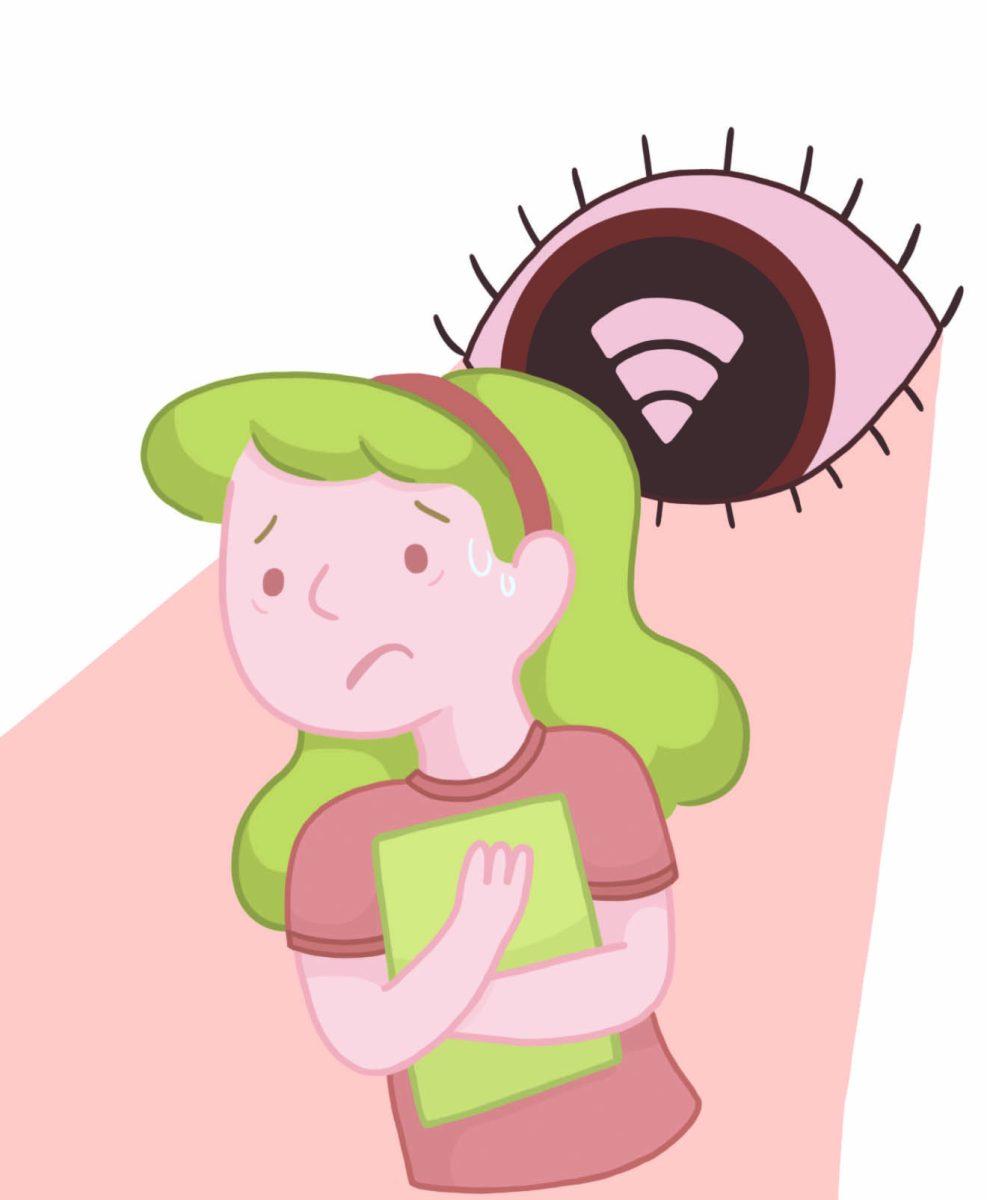Why surveillance technology on college campuses is counterproductive
Imagine if UTD administrators tracked your every move while on campus. From collecting your location data when attending class or logging how long you are in your room, how would you feel if university officials could access this data to conduct risk assessments on your behavior?
Clearly, these intrusive surveillance measures seem like an egregious violation of student privacy; however, thousands of schools around the nation, such as Depaul and Syracuse University, have implemented invasive tracking measures to collect data on students’ class attendance, academic performance, mental health and more. Although administrators seem to have good intentions with implementing these technologies to keep students accountable, they create unnecessary penalties for students, inaccurate risk assessments of student mental health and perpetuate a dangerous norm of allowing surveillance technology to infringe on our fundamental right to privacy.
Applications like SpotterEDU and Degree Analytics track the location data of students either by using bluetooth beacons or logging network signals that smartphones constantly connect to. These applications are marketed under the ideas of “helping students succeed” and taking a “reactive to proactive” approach to helping students graduate. This rationale can appear perfectly well-intentioned, but it is worth questioning the ethics and effectiveness of these measures. Students have actually been disadvantaged by these devices and have been unfairly marked absent while in class or late when they were on time. Furthermore, innocuous deviations in student behavior can flag university officials about students and create unnecessary apprehension for both parties.
The micromanagement of adult students by university officials creates a dangerous culture of accepting that university officials have the right to track our every move. Class attendance and identifying at-risk students are both important. But taking advantage of machine learning and artificial intelligence technologies to collect data on every aspect of a student’s life — in order to make potentially unfounded conclusions about their capabilities to succeed or their mental health — is not ethical. Rather than encouraging freedom on campus, students involved in anonymous protests or demonstrations can be quickly tracked down by external companies and punished—suppressing future student activism. In the event of a data breach, private student information can fall in the hands of malicious actors who could use this information to target specific students or certain populations of students.
The introduction of these technologies is a cop-out. It is an excuse for university officials to not allocate funding towards hiring counselors that will accurately assess the mental health status of a student, and it is an excuse for faculty members to not critically evaluate the quality of their instruction and instead rely on invasive software to increase class attendance. Universities like DePaul and Syracuse should take alternative measures such as expanding mental health resources, evaluating attendance policies and course content, identifying the reasons why students are not attending class and taking comprehensive and holistic measures to ensure that students graduate on time — rather than creating a mini-surveillance state on our college campuses.





